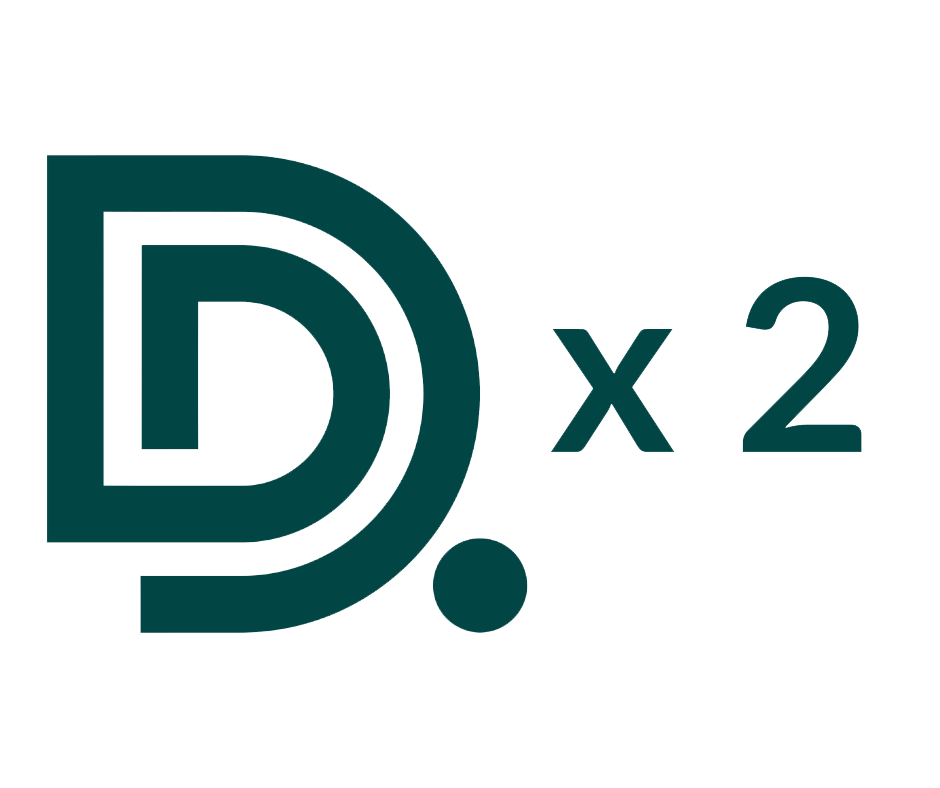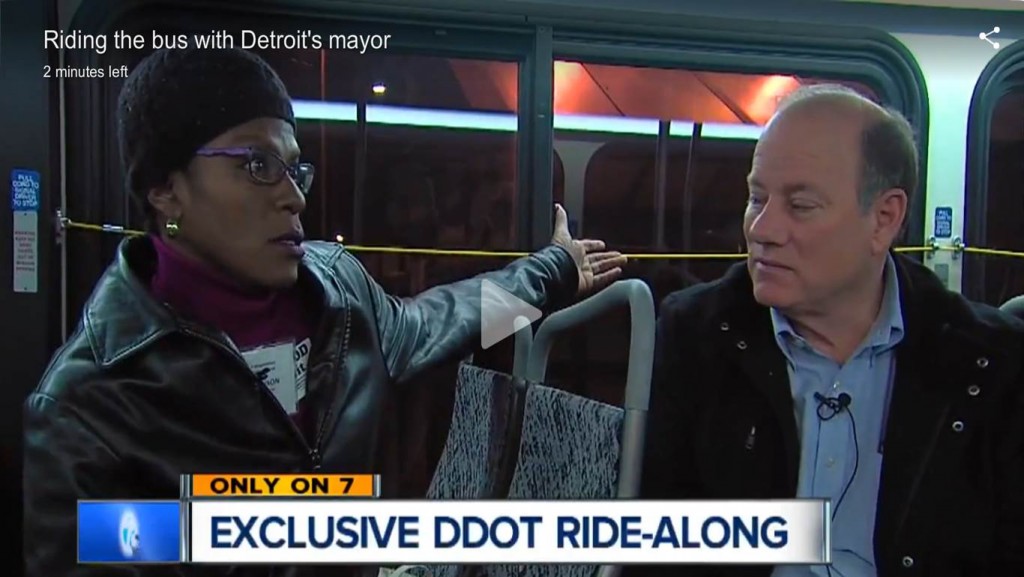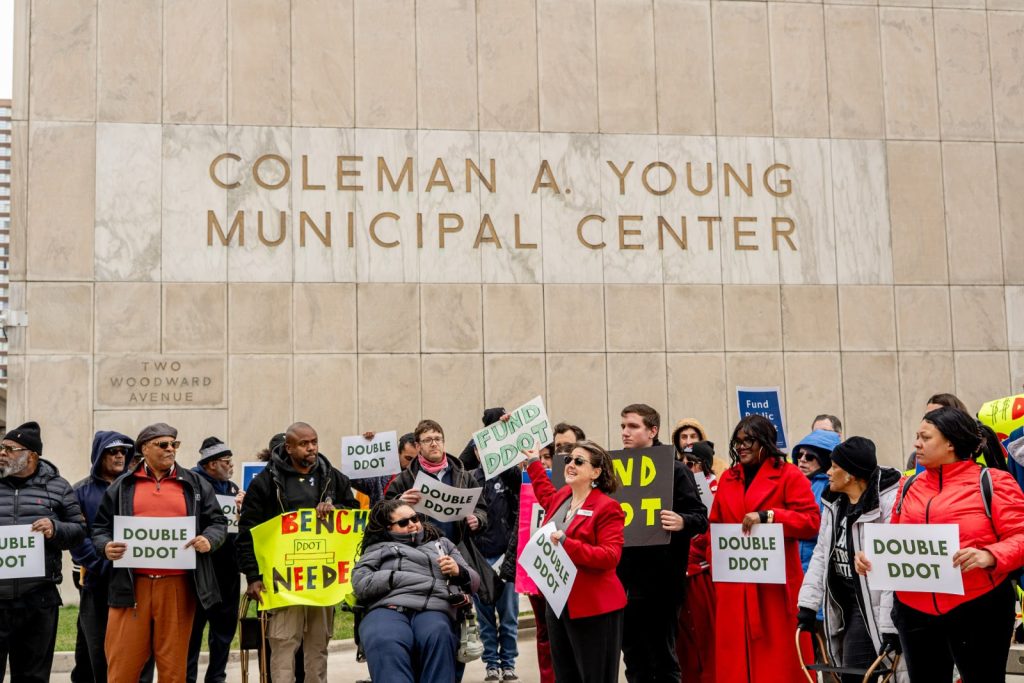TRU works hard to make transit better in Detroit. Learn more about what we’re currently doing to improve transit in the City of Detroit!
Double DDOT: Doubling transit in the City of Detroit

TRU’s work involving DDOT and transit in the City of Detroit is done with multiple strong coalition partners. Our work wouldn’t be possible without our allies.
All of our work within Detroit is aimed at addressing the goals outlined in the DDOT Reimagined Plan – to double transit in Detroit by 2030.
Doubling DDOT is a major goal – and will take strong commitments from the next mayor, increased budget updates, and wage parity between DDOT and SMART to achieve.
Mayoral Campaign Engagement
2025 is a critically important election year in the City of Detroit. For the first time in 12 years, the name Mike Duggan will not be on the ballot, and the race for Mayor is wide open, with over half a dozen candidates in the running. The entire City Council is up for reelection as well.
We’re asking the candidates what they’ll do to support transit as mayor of Detroit, taking them on ride-alongs to see what being a DDOT rider is like, and will be hosting a mayoral candidate forum on June 4th.
Update: Mayor-elect Mary Sheffield announced that Megan Owens, TRU’s Executive Director, would serve as a co-chair of the Transit Improvement & Mobility Innovation committee on her transition team! Additionally, Sheffield has identified transit as one of her major campaign prioritizes.

Detroit Transit Policy Platform

The Detroit Transit Policy Platform is a set of goals for the Mayoral Candidates to consider as they aim to become Detroit’s next mayor. TRU and the Double DDOT Coalition have developed nine ways the next mayor of Detroit can support transit:
- Double DDOT
- Support riders with disabilities
- Provide competitive, family-supportive wages
- Support transit funding on the Wayne County ballot
- Build regional and state support for transit investment
- Improve bus shelters and accessibility
- Ensure safe streets for all
- Advance transit-supportive land-use
- Provide consistent DDOT leadership
Wage Parity between DDOT and SMART
In 2023, TRU released a report highlighting the no-show bus crisis affecting Detroit at the time. DDOT and SMART were running 20-30% less service than pre-pandemic, and 5-10% of scheduled buses didn’t show up. This was largely attributed to low pay at the time – with starting pay at DDOT being $15/hour, and $19.11/hour at SMART
Thanks to the advocacy efforts of TRU, the ATU, and riders, DDOT wages were raised in early 2024 to a starting pay of $19/hour. But according to bus drivers, high turnover in the ranks continues to be a problem. This starting wage is still relatively low, and well below the starting pay at SMART, which now stands at $27/hour. The result is that DDOT must continually recruit and train more operators, which comes at a substantial cost. Contract negotiations with the drivers’ union, ATU Local 26, are expected to begin in June.
In order to ensure DDOT doesn’t face an operator shortage, TRU is calling for starting wage parity between DDOT and SMART.
Update: DDOT workers have received a major raise! Their starting wage is now $25/hour, just short of SMART’s $27/hour. DDOT mechanics have also received a major raise as well, thanks to our hard work and our labor allies!
DDOT Funding for FY26
In the most recent, FY2026 budget (approved in April of 2025), DDOT received a $22.7 million budget boost – an initial $20 million proposed by the mayor, and an extra $2.7 million for replacing fabric bus seats, a study on bringing paratransit operations in-house, and for driver wages and more bus shelters.
This was more than any other city department, and while short of our goals – hoping to bring DDOT’s now $136 million general fund contribution up to $150 million – this is a major step. As the news reported during this budget cycle – transit is becoming a top issue in the 2025 elections.
We’ll be back next year in February to our budget advocacy efforts, so stay tuned for updates!

What Can You Do?
Ask your candidates: What will they do to support transit in Detroit? With the campaign season underway, you can engage your candidates for mayor and council on transit. Letting the candidates know that transit is important to you let’s them know they should support transit as mayor.
